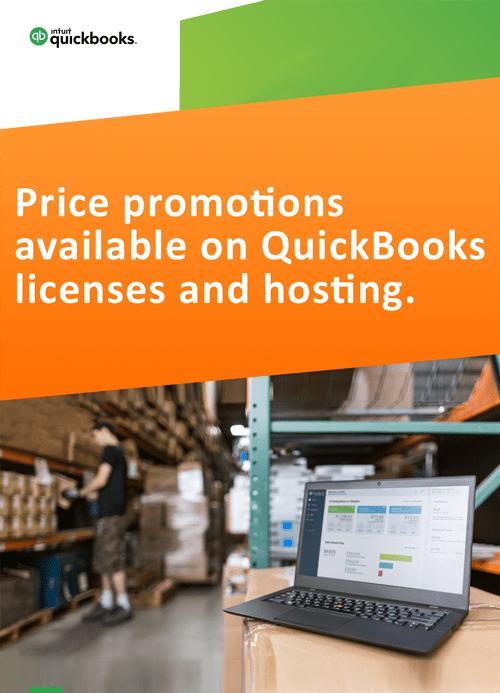

QuickBooks Self Employed vs QuickBooks Small Business – Comparison
QuickBooks is one of the most preferred accounting software for freelancers and small businesses for their accounting needs. It provides smart tools for handling business and personal finances. With a user-friendly dashboard for tracking income and expenses, all you have to do is link your accounts to capture all the transaction details without manually entering them.
Controlling costs has never been easier with interactive dashboards and informative reports. Businesses can get instant insights into their profitability and make smart decisions to maximize profits. While QuickBooks Self-Employed is the ideal software for freelancers, QuickBooks Small Business is useful for sole proprietors, LLPs, partnerships, non-profits and other such small entities.
Here, we will compare the features of QuickBooks Self-Employed and QuickBooks Online Simple Start, the basic version of QuickBooks Small Business.
Feature |
QuickBooks Self Employed |
Quick Small Business
|
|---|---|---|
| Part of QuickBooks Online Though both QuickBooks Online Small Business and Self Employed are cloud-based, QuickBooks Self Employed is a different product than QuickBooks Online. QuickBooks Small Business is a part of QuickBooks Online. |
☑ | |
| Personal and business accounts segregation
Separate transactions into “personal” and “business” types when using the same bank accounts or credit cards for all purposes. Independent contractors can organize financial records easily to accurately track income and outgo for business and personal use. |
☑ | |
| Manage tax deductions
Allocate financial records to the appropriate sections for simplified IRS reporting and maximize tax savings. Create rules to automatically group similar transactions to save time |
☑ | ☑ |
| Determine estimated quarterly taxes automatically
Independent contractors, self-employed professionals and freelancers have the obligation of making quarterly tax payments based on estimated earnings. Use simplified tax-calculation tools to avoid discrepancies during year-end tax time. |
☑ | |
| Get basic reporting features
Generate comprehensive reports on parameters such as profit and loss, tax summary and other details for insights about your business. Use simplified dashboards for tracking and reporting finances. |
☑ | |
| Track income and expenses accurately
Intelligently import and classify transactions from PayPay, Square, bank accounts, credit cards and even photos of receipts to match with expenses and income. Sort the records automatically into tax categories for minimizing time and effort. |
☑ | ☑ |
| Receipt matching
Upload photos of receipts to add expense records automatically. |
☑ | ☑ |
| Generate customized reports
Present information the way you want with customizable reports. Choose from a range of default reporting templates and customize them to cater to your unique business. Automate reports to keep stakeholders informed regularly. |
☑ | |
| Communicate estimates
Demonstrate your professionalism by creating estimates on QuickBooks and exporting schedules, bids, and quotes to email. Accept signatures and track status within the QuickBooks dashboard with convenience and efficiency. |
☑ | |
| Create custom invoices and accept payments
Generate personalized invoices with your business logo and track their status. Send reminders, tally payments, and invoices automatically. Accept payments from multiple channels right from the invoices. |
☑ | ☑ |
| Fulfill contractual obligations
Maintain compliance by quickly and efficiently generating 1099 for contractors to report their income from you to the IRS. Conveniently segregate 1099 from other expenses for simplicity and clarity. |
☑ | |
| Track travel expenses
Use the smartphone GPS to accurately and reliably calculate the distance traveled. Classify trips into personal and business categories for tax deductions. Generate and share mileage tracking reports from QuickBooks. |
☑ | ☑ |
QuickBooks Self Employed vs Small Business – What Will You Choose?
QuickBooks Self Employed and QuickBooks Small Business have registered trademarks of Intuit. These plans are available on a subscription basis from Intuit.
QuickBooks Self Employed and Small Business plans are sufficient for individuals who work either as freelancers or small businesses with a minimum number of employees. But if your business grows, you’ll need a proper desktop version of QuickBooks – Pro, Premier, Enterprise or Accountant.
Alternatively, if you’re a small business and do not want to use the online versions because you’re too comfortable with QuickBooks Desktop version, you can move it to the cloud while keeping all the functionalities of the software intact. It must be noted that the Desktop versions like QuickBooks Desktop Premier and QuickBooks Desktop Pro involve capital costs of purchasing the software. Alternatively, you can opt for a QuickBooks hosting plan that gives you the benefits of these features on a subscription basis from an authorized partner like Apps4Rent. We provide 24/7 support via email, chat, and phone free of cost.



